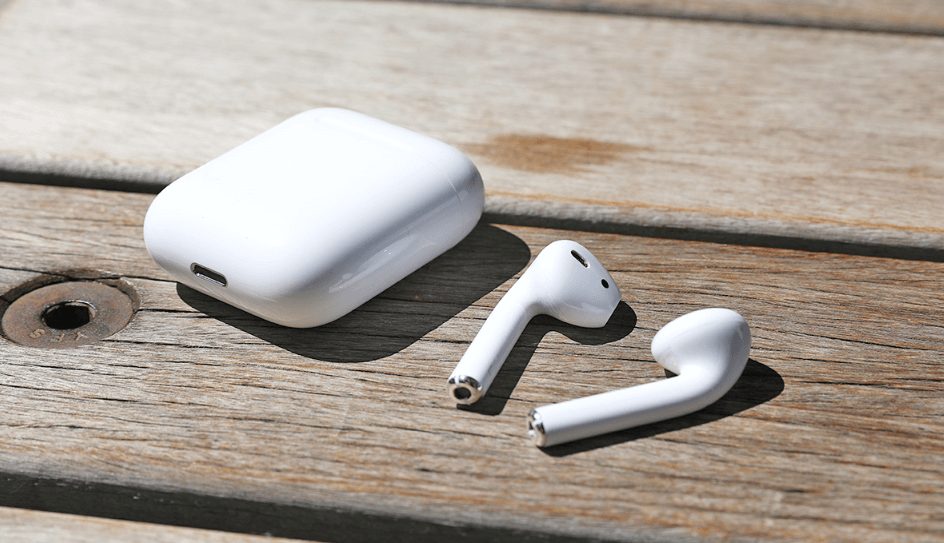You may have heard of Qi charging, but you may not know exactly how it works or how to get started. If you’re still plugging your phone into the wall charger, it may be time to consider switching to wireless or Qi charging. From knowing which phone cases work best for Qi charging to deciding which wireless charger works best for your device, here’s everything you need to know about Qi charging.

What Is Qi Charging?
Qi (pronounced like “chee”) charging has become the prevalent standard for wireless charging. Most smartphones today have wireless charging compatible with Qi charging. According to Apple, you can wirelessly charge the iPhone 8 and later models using a Qi-certified charger. You can also use a Qi-certified charger to charge AirPods. Companies like Apple and Google are part of the Wireless Power Consortium (WPC), which developed the Qi standard.
One of the benefits of the Qi standard is that with wired chargers today, you need a specific wired charger for an Apple iPhone while you need a totally different wired charger for a Samsung Galaxy. Qi wireless charging helps standardize wireless charging across multiple devices.
Does Qi Charging Actually Work?
Older smartphones weren’t as compatible with Qi charging. This is what led to the myth that Qi charging doesn’t work. However, today there are many more smartphones that are compatible with Qi charging as a result of the standardization efforts by the WPC. Today, Qi charging is just as effective as wired charging.
The wireless or inductive charging process uses electromagnetic induction to transfer energy between the Qi wireless charger to the device using a set of induction coils. That means even when your smartphone is in a phone case, your phone can still charge wirelessly. We’ll dive into which phone cases work best for wireless charging.

Can You Wirelessly Charge Your Phone with a Case on It?
If you’ve been looking at iPhone 13 cases and wondered, “Does wireless charging work with a case?” — you’re not the only one asking that question. Because Qi-standard charging uses electromagnetic induction, there are certain phone cases that can interfere with the wireless charging process. When choosing a phone case, stay away from metal cases that can interfere with an electromagnetic signal. Don’t use a phone case that’s too thick, either. Instead, opt for a phone case that’s thinner.
Is It Possible to Overload the Battery with Qi Charging?
One popular wireless charging myth you may have heard is that your phone can overload, and the battery can explode if you leave it charging overnight. Whether you’re wireless charging your phone or using the wired charger — no, your phone won’t just explode because you’ve left your phone charging overnight.
There are built-in protection chips inside your smartphone and most other electronics today, like laptops and tablets, that will prevent that from happening. Once your device’s battery reaches 100 percent capacity, the charging will simply stop.
Is Wireless Charging Dangerous?
It can always be intimidating to start using new and unfamiliar technology. Rest assured, wireless charging is completely safe. Your battery won’t explode because of Qi charging. The electromagnetic signal won’t adversely affect you. That electromagnetic technology is the same technology that’s found in electric toothbrushes. There are plenty of benefits of wireless charging, including that it’s convenient and optimal for battery health. Plus, you don’t have to worry about damaging the charging port or tangled cables everywhere.
Which Wireless Charger Works Best for My Phone?
When choosing a Qi charger for your smartphone, make sure you’re choosing ones that are Qi-certified. Don’t use any wireless chargers from brand names you’re not familiar with or never heard of before. Always do your research when choosing wireless chargers or any other accessories for your electronic devices.
Is Qi Charging Bad for My Phone’s Battery?
No, Qi charging isn’t bad for your phone’s battery life. In fact, it’s actually more optimal for your phone’s overall battery life. Unlike wired chargers, you can conveniently charge your phone as you need it while being able to periodically use your phone. You don’t have to sit there by the wall charger.
Another way to extend your phone’s battery life is to not wait until your phone’s battery life drops to 0 percent. Contrary to popular belief, a full discharge actually wears out your lithium-ion battery faster than it should. Simply do a partial discharge by wirelessly charging your phone once it goes down to about 30 percent.

What Should I Look for When Choosing a Wireless Charger?
Here’s the important thing you should look for: make sure your wireless charger is Qi-certified. If your wireless charger doesn’t explicitly say that it’s Qi-certified, don’t risk it. Opt for wireless chargers with higher wattage like 15W. A higher wattage charger is linked with longer life, and you may not need to replace your charger as quickly as you would have to with lower wattage chargers.
Finally, pick a wireless charger that you actually enjoy looking at. If you’re getting a charger that’s going to sit at your bedside table or on your work desk, get one that’s aesthetically pleasing and blends in with your other decor.








